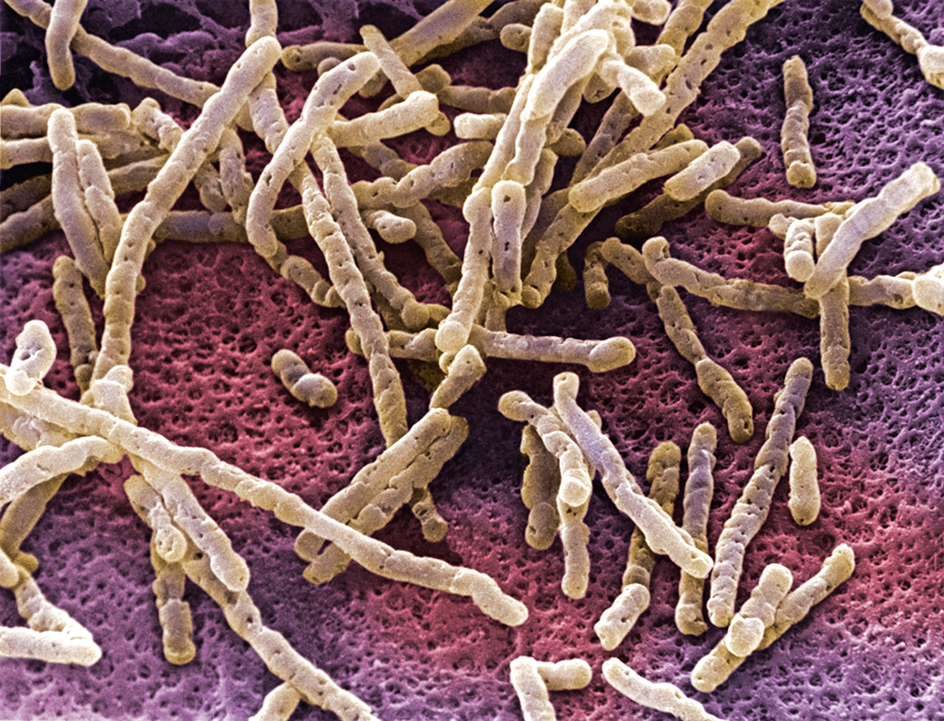Clostridium, << klos TRIHD ee uhm, >> is a genus (group) of hardy bacteria commonly found in soil. The bacteria do not need air to live. In fact, they cannot survive exposure to oxygen. They produce cells called spores that are resistant to many conditions harmful to the bacteria. Such conditions include exposure to oxygen, heat, radiation, certain chemicals, and antibiotics. Several species (kinds) of Clostridium cause illness in humans.

Two Clostridium species, Clostridium tetani and Clostridium botulinum, produce two of the deadliest toxins (poisons) known. These species cause the illnesses tetanus and botulism in humans (see Botulism ; Tetanus ).
Another species, Clostridium perfringens, causes many kinds of illness, such as gas gangrene, blood infections, and food poisoning. Methods typically used to sanitize food are often ineffective against C. perfringens spores. Such methods include treatment with high heat and salt, and oxygen-free packaging. C. perfringens spores are resistant to heat, become active in the presence of salts, and grow readily in oxygen-free environments. The bacterium produces a toxin that damages the small intestine, causing diarrhea.
Another species, Clostridium difficile, has become a serious problem, particularly in hospitals. These bacteria are resistant to many antibiotics. C. difficile infections begin most commonly in the course of antibiotic treatment for another infection. Antibiotics also kill many bacteria normally present in a healthy large intestine. These beneficial bacteria protect against C. difficile infections. Once the beneficial bacteria are killed, C. difficile enters the large intestine. There it grows, produces toxins, and forms spores. The toxins damage the lining of the intestine, leading to diarrhea.
Doctors may discontinue the original antibiotic treatment if patients develop a C. difficile infection. They commonly prescribe other powerful antibiotics to treat the infection. However, about one-quarter of patients become reinfected by new spores or by spores that remain in the colon. Spores of C. difficile are resistant to sanitation measures, making the bacteria difficult to clean from the hospital environment.
